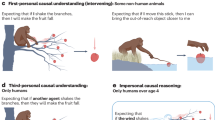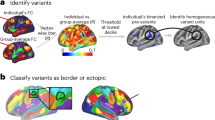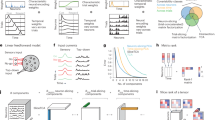Abstract
CROSSMAN1 investigated the time taken to discriminate between stimuli, and produced an empirical expression for the ease of discrimination between two stimuli (their ‘discriminability’ D) the inverse of which (the ‘confusion function’) was proportional to the time taken to discriminate. The characteristics of this function were that it depended upon the ratio of the stimulus values concerned, and not upon their absolute magnitudes, and that it tended to 0 and ∞ as this ratio tended to 0 and 1 respectively. The present communication outlines a mathematical model of perception processes, from which a theoretical confusion function was derived.
This is a preview of subscription content, access via your institution
Access options
Subscribe to this journal
Receive 51 print issues and online access
$199.00 per year
only $3.90 per issue
Buy this article
- Purchase on Springer Link
- Instant access to full article PDF
Prices may be subject to local taxes which are calculated during checkout
Similar content being viewed by others
References
Crossman, E. R. F. W., Quart. J. Exp. Psych., University of London, 7, No. 4, 176 (1955).
Cane, V. R., J. Roy. Stat. Soc., 18, No. 2, 177 (1956).
Author information
Authors and Affiliations
Rights and permissions
About this article
Cite this article
HAMMERTON, M. A Mathematical Model for Perception and a Theoretical Confusion Function. Nature 184, 1668–1669 (1959). https://doi.org/10.1038/1841668b0
Issue Date:
DOI: https://doi.org/10.1038/1841668b0
This article is cited by
-
Theoretical and Empirical Confusion Functions
Nature (1962)
Comments
By submitting a comment you agree to abide by our Terms and Community Guidelines. If you find something abusive or that does not comply with our terms or guidelines please flag it as inappropriate.



